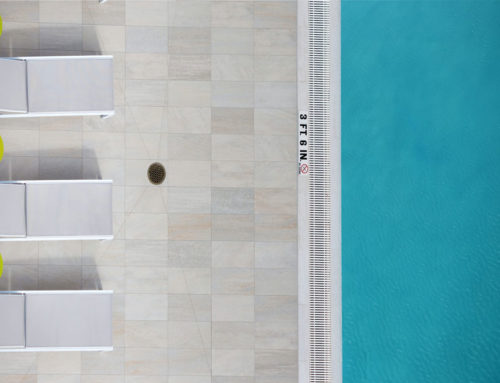Although all pool employees are familiar with the term “recreational water illness,” not all of them may know the details.
Providing the safest swimming environment possible for guests means ensuring that all staff members know the ins and outs of the various dangers that are inherent to pools. This includes people outside of the pool maintenance department. Although they may not deal with or protect against RWIs as directly as certified maintenance technicians, they do deal with guests, and knowing how RWIs are introduced into the water can motivate them to monitor guests more diligently.
Know the basics
Those who don’t work in maintenance may not know that chlorine kills most, but not all bacteria. RWIs become a problem when swimmers swallow water or breathe in vapor or mist from contaminated bodies of water.
RWIs can come from exposure to bodily fluids such as urine or fecal matter, but they can also be caused by chemicals evaporating in the water, according to the U.S. Centers for Disease Control and Prevention. Therefore, it’s critical for indoor pool employees to maintain chemical and humidity levels at all times to ensure overall safety.
Depending on the RWI, there can be a number of infections that swimmers can get, including ones that affect the skin, ears, eyes, gastrointestinal system, wounds and more.
Learn about specific RWIs
Pool employees should familiarize themselves with different kinds of RWIs. Not only is it relevant to swimmer safety, but it can also help managers stress the importance of maintaining cleanliness in and around the pool at all times.
1. Cryptosporidium: Also referred to as Crypto, this microscopic parasite has seen an increase of outbreaks in recent years, making it an important RWI for employees to learn about. Water becomes contaminated by Crypto through contaminated feces. Therefore, a single person with Crypto can put everyone who attends the pool at risk. This danger doesn’t disappear after the individual leaves the water, either. Crypto has a tough outer shell that allows it to survive outside the human body for long periods of time and heightens its tolerance against chlorine. Crypto can cause prolonged diarrhea, which can last two to three weeks.
Giardia: This microscopic parasite causes giardiasis, which is a diarrheal illness. It can affect both humans and animals. Therefore, people can come into contact with it in the water, on soil or in food. Though less common than Cryptosporidium, giardia causes much of the same problems as Crypto. Like Crypto, it has a high chlorine tolerance. Giardia’s ability to cause illness in humans and animals underscores the importance of protecting the pool against wildlife because the contaminants that they may introduce into the water can be harmful to people.
Recognize the benefits
Helping non-pool maintenance staff members understand different RWIs better can open their eyes to the many ways in which harmful parasites and other contaminants can enter the pool. It’s not just a matter of balancing the chemicals and asking swimmers to shower before entering the water. RWI prevention also means encouraging families with young children to take bathroom breaks or check diapers frequently, ensuring that dirt and food stay out of the pool and more.
Additionally, once employees learn about the causes and effects of RWIs, managers can lead brainstorming sessions on creative and effective ways to ask the public to be more aware of their routines around the pool and how certain behaviors can be changed to ensure safety for everyone.






